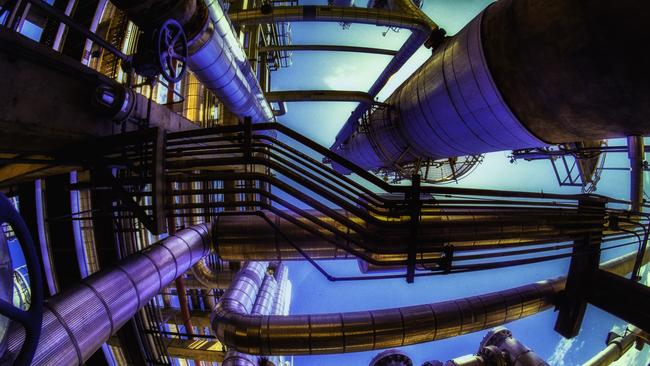
Consolidation has been a key thematic playing out in the oil and gas industry, and some think the global heavyweights are not yet done, with $50bn Australian company Woodside in their sights.
The market believes that all the major energy players see Woodside as the most obvious mergers and acquisitions candidate. The question is whether the Australian government would ever let a major offshore energy player pry it away from the ASX.
Already, Australia’s energy industry has undergone some consolidation of its own.
In 2021, Santos and Oil Search completed a $21bn merger, and there has been M&A deals at the smaller end of town, with Strike Energy and billionaire Gina Rinehart’s Hancock jostling for control of Warrego Energy last year.
There’s also suggestions that Hancock could further consolidate the Perth Basin, where Strike Energy operates.
Santos and Woodside tried to merge last year, but that deal faced headwinds, with different investor bases of each stocks and differing views around value.
But now the attention turns to Chevron and its intentions, while European groups need to get bigger, and they know it.
BP, in particular, lacks the LNG globally that an acquisition of Woodside could provide.
Shell has tried to buy Woodside before, so it knows the target well. It bid $10bn in 2001 but the deal was blocked by the then-treasurer, Peter Costello.
Another that may play is Total. Yet Chevron is the name that comes up most in conversation, and US oil majors have largely swallowed up all the smaller opportunities on home soil, knowing there’s not a lot left from an M&A perspective.
This time around if a foreigner bids for Woodside, some think the chances are higher for the government to allow the deal to proceed than in the past.
Recently, Woodside has been targeting the US market for M&A, in a signal it sees Australia as a less friendly place do to business and expand than before.
Yet most still don’t see a deal as a high probability.
A dilemma of whether to approve a foreign takeover of Woodside is the last thing Anthony Albanese would want to be dealing with in the build-up to an election, with energy at the centre of political debate.
Whatever the government decides, it is likely to be criticised – either for supporting a deal in which a foreign group buys an Australian energy champion, or showing a commitment to the fossil fuels industry.
Major global deals in the past year include ExxonMobil’s $US60bn acquisition of Pioneer Natural Resources, Chevron’s acquisition of Hess for $US53bn, and Diamondback Energy’s $US26bn acquisition of Endeavour Energy Resources.



